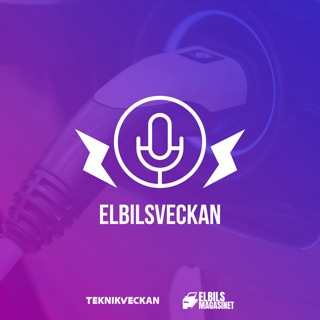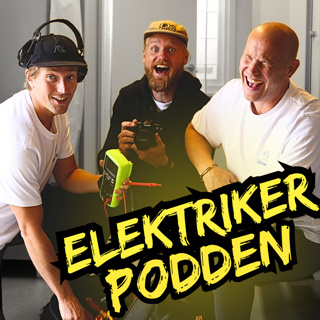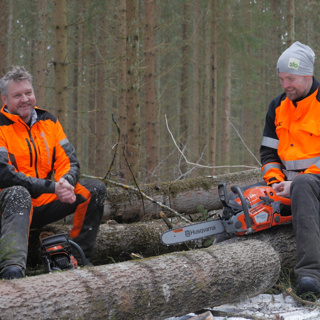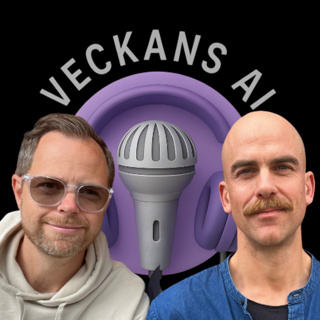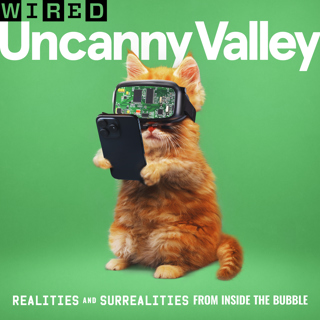
The ‘Wild West’ of EV Charging
Electric Vehicles are having a real moment. People by and large prefer EVs because they're greener, quieter, and often more fun to drive than gas cars. But one sticking point in the EV revolution is charging. There are more charging stations now than there have ever been, but it’s still not enough. And how those stations are distributed can make driving long distances in an EV feel like a bit of a gamble.This week on Gadget Lab, WIRED staff writer Aarian Marshall joins the show to talk about the state of EV charging, the feelings of “charging anxiety,” and whether people really need to worry all that much about those EV battery fires in the news.Show Notes:Read Aarian’s story on the current state of EV charging prices. Aarian writes for WIRED about all things electric vehicle and transportation related.Recommendations:Aarian recommends three different episodes of PJ Vogt’s Search Engine podcast featuring Ezra Klein as a guest. Mike recommends Agnes Varda’s film The Gleaners and I from the year 2000. Lauren is out this week.Aarian Marshall can be found on social media @AarianMarshall. Michael Calore is @snackfight. Bling the main hotline at @GadgetLab. Lauren Goode is @LaurenGoode. The show is produced by Boone Ashworth (@booneashworth). Our theme music is by Solar Keys. Learn about your ad choices: dovetail.prx.org/ad-choices
22 Aug 202427min

Your Photos Aren’t Real
At a splashy media event this week at its headquarters in Mountain View, California, Google announced four new Pixel phones. But the really important stuff unveiled at the Made By Google event wasn’t the hardware itself, but rather all of the generative AI tools packed into the devices. Most notable are some AI-powered camera features that allow Pixel owners to easily add themselves to a group shot after they’ve taken the photo, or to alter any scene entirely by changing night to day and adding objects that were never really there. It’s an exploration of our limits—how convincingly technology can bring alternate realities to life, and how much of the computer-generated scenery we can tolerate.This week on Gadget Lab, WIRED senior reviews editor Julian Chokkattu joins the show to talk about Google’s fancy new photo tricks. We also talk about Gemini Live, the latest iteration of the company’s AI-powered voice chatbot. Finally, we ask the unaskable: Is Google Assistant finally dead, or just banished to Google’s attic?Show Notes:Read more about all the new updates from the Made By Google event, including Google’s Pixel camera updates. Learn how the company is using AI to reshape reality. There are some potentially life-saving new features on the Pixel Watch 3. Also read Reece Rogers’ WIRED story about ChatGPT’s advanced voice mode and Jia Tolentino’s New Yorker story about tweens and Sephora.Recommendations:Julian recommends folding flip phones. Lauren recommends Colorscience Sunforgettable Total Protection Face Shield Flex SPF 50 sunscreen lotion. Mike recommends the audiobook version of All Fours by Miranda July. (You can listen to it in Spotify Premium.)Julian Chokkattu can be found on social media @JulianChokkattu. Lauren Goode is @LaurenGoode. Michael Calore is @snackfight. Bling the main hotline at @GadgetLab. The show is produced by Boone Ashworth (@booneashworth). Our theme music is by Solar Keys. Learn about your ad choices: dovetail.prx.org/ad-choices
15 Aug 202439min

Good Luck Selling Your AI Startup
There has been a no wilder time than the present to build a company around artificial intelligence. The server bills are astronomical, for one. Also the market for talent is red hot, and you’ll end up paying through the nose for good people. Even if you do get funding, staff up, get the product off the ground, and start making headway in a crowded field, there’s the specter of Big Tech looming overhead. The hypercarnivorous raptors of Silicon Valley—Google, Apple, Amazon, and Meta—will fix their steely eyes on the plump prey of your best employees and your intellectual property.But they can’t just buy you. Not anymore; outright acquisitions could draw the attention of regulators in the US and Europe, where governments are ramping up their antitrust efforts. Now instead of gobbling you up, a big tech company will license your tech and bring your top talent into their offices to collaborate with their employees. This maneuver—not an acquisition, more like an acquihire with some partnerships included—is something we’ve seen a few times in recent months. And we can expect more.This week, we welcome WIRED senior writer Paresh Dave back onto the show to discuss the current trend of partnerships between small AI companies and the tech giants. We also talk about how regulators are really cracking down on Google in particular.Show Notes:Read about the US court ruling that found Google engaged in monopolistic practices to increase its search engine’s dominance. Read more about Character AI, Meta, and customizable chatbots. Read all of WIRED’s antitrust coverage.Recommendations:Paresh recommends playing games on Netflix, like Triviaverse. Mike recommends the new documentary Mountain Queen: The Summits of Lhakpa Sherpa, which is also on Netflix. Lauren recommends “Inside the Secret Negotiations to Free Evan Gershkovich” from The Wall Street Journal.Paresh Dave can be found on social media @peard33. Lauren Goode is @LaurenGoode. Michael Calore is @snackfight. Bling the main hotline at @GadgetLab. The show is produced by Boone Ashworth (@booneashworth). Our theme music is by Solar Keys. Learn about your ad choices: dovetail.prx.org/ad-choices
8 Aug 202431min

Dating Games
If the idea of going on a date makes you anxious, and all you’d really rather do with your evening is stay home and play video games, well, have we got the app for you. Date Like Goblins, a new dating platform that debuted on Kickstarter this week and will launch later this year, invites you to go on dates that take place entirely inside your favorite video games. You play a few rounds of Fortnite or Final Fantasy with your date, while voice-chatting and getting to know each other. It’s cute!Date Like Goblins is one of many niche, interest-specific dating platforms. There are apps for farmers, Christians, jamband fans, rope bunnies—whatever you’re into. These smaller, more tailored communities can be seen as an antidote to fatigue that’s caused by the over-monetized and alienating experience of the big dating apps like Tinder, Bumble, and Hinge. This week, we’re joined by WIRED staff writer Amanda Hoover to talk about Date Like Goblins and the other apps that have learned the cheat code for online romance.Show Notes:Read Amanda’s story about Date Like Goblins. Read Lauren Goode on “Date Me” docs. Read Jason Parham on Boomers on the apps. Read all of our dating coverage.Recommendations:Amanda recommends making butter coconut bars for your next summer potluck. Lauren recommends the recent episode of The Daily from The New York Times with Taffy Brodesser-Akner telling the story about her new book. Michael recommends Trickster: The Many Lives of Carlos Castaneda, a podcast about the wild, shadowy history of the famous author and counterculture figurehead.Amanda Hoover can be found on social media @byamandahoover. Lauren Goode is @LaurenGoode. Michael Calore is @snackfight. Bling the main hotline at @GadgetLab. The show is produced by Boone Ashworth (@booneashworth). Our theme music is by Solar Keys. Learn about your ad choices: dovetail.prx.org/ad-choices
1 Aug 202430min

The Ocean's Tipping Point
If you haven’t heard of it before, you’re about to become intimately familiar with the Atlantic Meridional Overturning Circulation. This system of currents—which brings water up the Atlantic from the southern tip of South America, through the tropics, and all the way to the coast of Iceland before looping back down south—plays a key role in keeping our planet’s climate stable. It keeps northern European winters relatively mild, it provides nutrients to ocean life, and it brings much-needed rain to agricultural systems in equatorial zones.Researchers who study the AMOC say this system is showing signs of instability, and it could shut down entirely—and soon. If the current slows down or stops, it would potentially kick off an ecological disaster of epic proportions. Deep cold spells, crushed food systems, entire regions in drought. This week, we bring WIRED features editor Sandra Upson onto the show to talk about the AMOC, the research that’s being done on it, and what life would be like on Earth if the current reaches its tipping point. Buckle up. Show Notes:Read “How Soon Will the Atlantic Ocean Break? Two Sibling Scientists Tried to Answer That—and Shook the World,” Sandra Upson’s WIRED feature on the researchers who are studying the AMOC and who have estimated the current could collapse in the next 30 years or so. Read our previous coverage of the AMOC research that kicked off the present debate about when it could reach the tipping point.Recommendations:Sandra recommends watching trashy reality shows in a language you’re trying to learn as an informal and entertaining study aid. Mike recommends embracing Brat Summer—IYKYK. Lauren recommends the book The Wave by Susan Casey, which is about the science and joy and terror of big waves.Sandra Upson can be found on social media @sandraupson. Lauren Goode is @LaurenGoode. Michael Calore is @snackfight. Bling the main hotline at @GadgetLab. The show is produced by Boone Ashworth (@booneashworth). Our theme music is by Solar Keys. Learn about your ad choices: dovetail.prx.org/ad-choices
25 Juli 202430min

The Blurred Reality of Human-Washing
Voice assistants have become a constant presence in our lives. Maybe you talk to Alexa or Gemini or Siri to ask a question or to perform a task. Maybe you have to do a little back and forth with a voice bot whenever you call your pharmacy, or when you book a service appointment at your car dealership. You may even get frustrated and start pleading with the robot on the other end of the line to connect you with a real human.That’s the catch, though: These voice bots are starting to sound a lot more like actual humans, with emotions in their voice, little ticks and giggles in between phrases, and the occasional flirty aside. Today’s voice-powered chatbots are blurring the lines between what’s real and what’s not, which prompts a complicated ethical question: Can you trust a bot that insists it’s actually human?This week, Lauren Goode tells us about her recent news story on a bot that was easily tricked into lying and saying it was a human. And WIRED senior writer Paresh Dave tells us how AI watchdogs and government regulators are trying to prevent natural-sounding chatbots from misrepresenting themselves.Show Notes:Read more about the Bland AI chatbot, which lied and said it was human. Read Will Kight’s story about researchers’ warnings of the manipulative power of emotionally expressive chatbots.Recommendations:Lauren recommends The Bee Sting by Paul Murray. (Again.) Paresh recommends subscribing to your great local journalism newsletter or Substack to stay informed on important local issues. Mike recommends Winter Journal, a memoir by Paul Auster.Paresh Dave can be found on social media @peard33. Lauren Goode is @LaurenGoode. Michael Calore is @snackfight. Bling the main hotline at @GadgetLab. The show is produced by Boone Ashworth (@booneashworth). Our theme music is by Solar Keys. Learn about your ad choices: dovetail.prx.org/ad-choices
18 Juli 202426min

Semaglutide for the People
Ozempic has been hailed as a miracle drug. It is the most well known of the GLP-1 medications, a class of drugs that can help regulate appetite, digestion, and blood sugar—and help those suffering from obesity or diabetes lose weight. Naturally, these drugs are very much in demand. But now there is a shortage of Ozempic and other GLP-1s, which has led to a swell of clones that purport to offer the same benefits and the same key ingredient, semaglutide, at lower prices. These clone drugs are easy to procure from telehealth providers, even if a buyer needs to lie about themselves a little bit to buy them.In this brave new weight-loss world, we're still coming to grips with how these drugs fit into our society. Part of that journey is the continued study about how GLP-1 drugs work—much of how they affect us is still unknown—and the continued debate about how much we should regulate and control their use.This week on Gadget Lab, we talk with WIRED writers Kate Knibbs and Emily Mullin about how GLP-1 medications like Ozempic work and what happens when they don’t. We also talk about the current drug shortage and how that may get resolved.Show Notes:Read Kate’s story about buying cloned Ozempic online. Read Emily’s story about how Ozempic doesn’t work for everyone. Read all the stories in WIRED’s The Age of Ozempic series.Recommendations:Emily recommends staying cool this summer however you can. Kate recommends the HBO series John Adams, starring Paul Giamatti. Mike recommends buying a used 35-mm film camera and shooting some rolls to flex your creativity.Kate Knibbs can be found on social media @Knibbs. Emily Mullin is @emilylmullin. Michael Calore is @snackfight. Lauren Goode is @LaurenGoode. Bling the main hotline at @GadgetLab. The show is produced by Boone Ashworth (@booneashworth). Our theme music is by Solar Keys. Learn about your ad choices: dovetail.prx.org/ad-choices
11 Juli 202428min

Thinking About Buying a Hybrid Car? Listen Up
Back in March, the US Environmental Protection Agency finalized a long in the works rule requiring automakers here to dramatically increase the number of battery-powered vehicles they’re putting on the roads. The government has mandated that by 2032, more than half of new cars sold must be electric. There are some caveats, namely that plug-in hybrid cars will fulfill the federal requirements for what a “battery-powered” vehicle is. This has led to a flood of hybrid cars hitting the market. This week, we talk about what this means for people who are considering buying a new car now, or in the next few years. We explain the differences between plug-in hybrids, full hybrids, and electrics, and we tell you what your options are if you live in an apartment without a convenient place to plug in your car while it’s parked. We are joined this week by WIRED staff writer Aarian Marshall, who breaks down the facts, shatters the myths, and turns us all into hybrid car experts.This episode originally aired on April 2, 2024. Read the transcript.Show Notes:Read Aarian’s story about the new US emissions rules. Also read her story about automakers struggling to hit their US sales targets for electric cars.Recommendations:Aarian recommends going to one of those baseball games where you also bring your dog. (They let you run the bases!) Mike recommends The New York Trilogy by novelist Paul Auster, who died this week at 77. Lauren recommends The Lights, the newest book of poetry and prose by Ben Lerner.Aarian Marshall can be found on social media @aarianmarshall. Lauren Goode is @LaurenGoode. Michael Calore is @snackfight. Bling the main hotline at @GadgetLab. The show is produced by Boone Ashworth (@booneashworth). Our theme music is by Solar Keys. Learn about your ad choices: dovetail.prx.org/ad-choices
4 Juli 202430min



